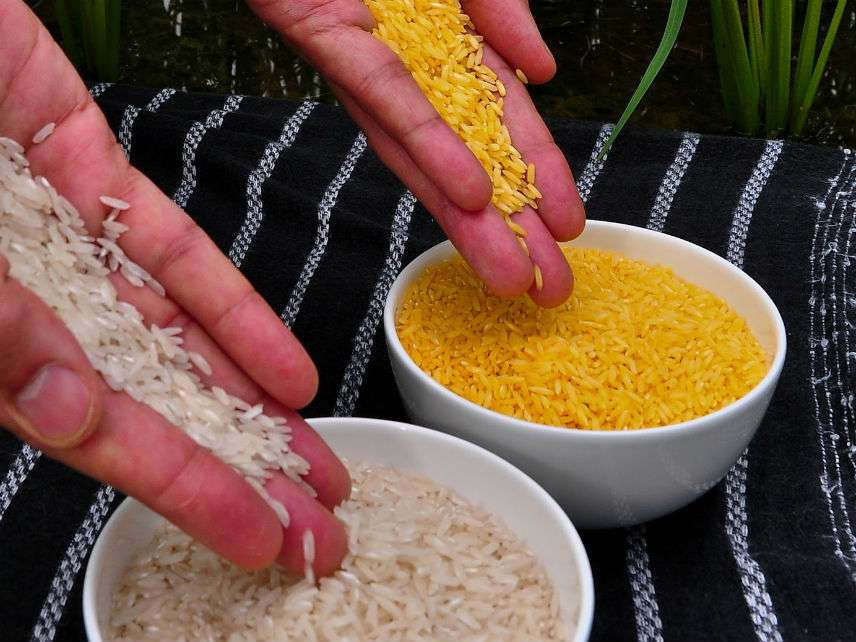Life-Saving Golden Rice Finally Gets to Poor Farmers Despite Environmentalist Opposition
Bangladesh announces that it will allow its farmers to plant this genetically improved crop

Golden Rice which has been genetically engineered to have higher levels of the vitamin A precursor beta-carotene is finally about be to approved for planting by poor farmers in Bangladesh. This a big step toward improving the health of some of the poorest people on the planet. Vitamin A deficiency causes blindness in between 250,000 and 500,000 children each year, half of whom die within 12 months, according to the World Health Organization. A study by German researchers in 2014 estimated that activist opposition to the deployment of Golden Rice has resulted in the loss of 1.4 million life-years in just India alone.
Environmentalist ideologues have fought fiercely for two decades to prevent this crop from being offered to poor farmers in developing countries. Among other things, they hired thugs to rip up test fields of the grain at the International Rice Research Institute in the Phillippines.
In 2016, an open letter signed by 100 Nobel Laureates directly called on "Greenpeace to cease and desist in its campaign against Golden Rice specifically, and crops and foods improved through biotechnology in general." The laureates pointed out that "scientific and regulatory agencies around the world have repeatedly and consistently found crops and foods improved through biotechnology to be as safe as, if not safer than those derived from any other method of production. There has never been a single confirmed case of a negative health outcome for humans or animals from their consumption. Their environmental impacts have been shown repeatedly to be less damaging to the environment, and a boon to global biodiversity."
"A committee of the Ministry of Environment will give the clearance for the production of Golden rice. We will be able to start cultivation of the rice in Bangladesh within two-three months upon getting ministry clearance," told Bangladeshi Agriculture Minister Abdur Razza to the Dhaka Tribune. He noted, "Golden rice is more important than the other varieties of rice as it will be helpful to fight the vitamin A deficiency."
Sadly, local activists spurred on by international groups are still trying to stop farmers from growing this beneficial crop. One tactic is to spread lies claiming that an eggplant variety genetically engineered to resist insect pests (Bt) approved by the Bangladeshi government in 2013 has not resulted in promised benefits.
In fact, a 2018 study published in Bangladesh Journal of Agricultural Research reported that the biotech varieties boosted yield by about 10 percent. But more signficantly, the biotech crops dramatically lowered their costs of production while increasing their incomes. Net returns per hectare were $2,150 for Bt eggplant as compared to $360 for non-Bt eggplant. Pesticides were applied 11 times to Bt eggplant where as it was 41 times to non-Bt eggplant for controlling sucking pests. The Bt eggplant farmers saved 61 percent of the pesticide cost compared to non-Bt eggplant farmers, experienced no losses due to fruit and shoot borer, and received higher net returns.
The activists also claim that Bangladeshi farmers are abandoning the biotech eggplant, but the study actually reported, "All Bt and 86 percent non-Bt farmers wanted to cultivate Bt eggplant in the next year if they can obtain the seeds/seedlings from the research station."
Shame, shame on the activists who so successfully delayed the deployment of golden rice. But hooray that it's finally getting to the poor people whom it will benefit most.


Show Comments (62)